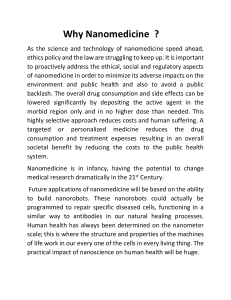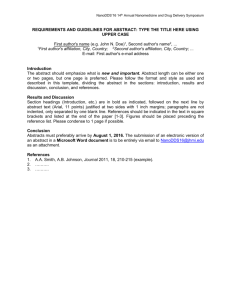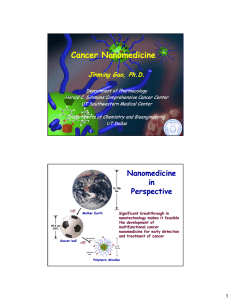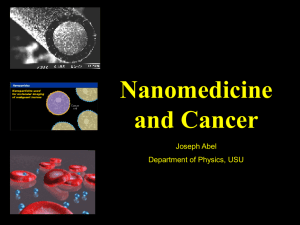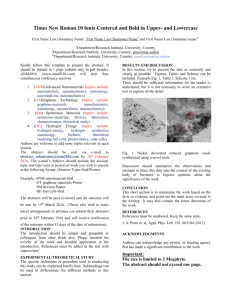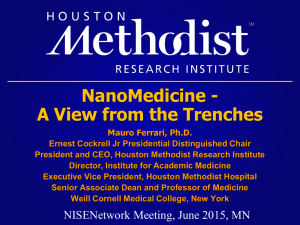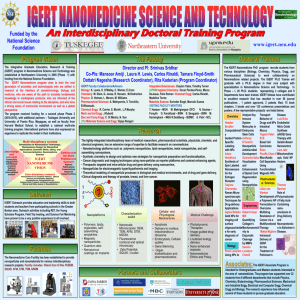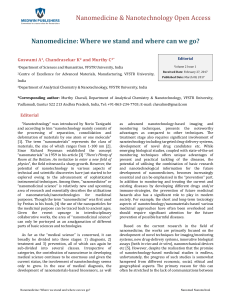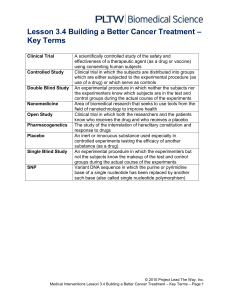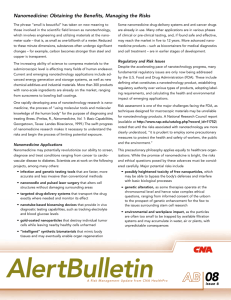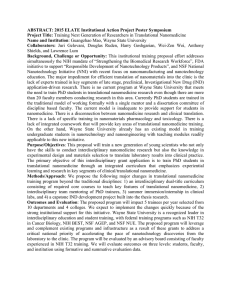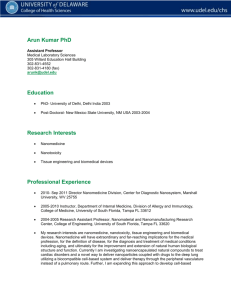Handbook of Materials for Nanomedicine
advertisement
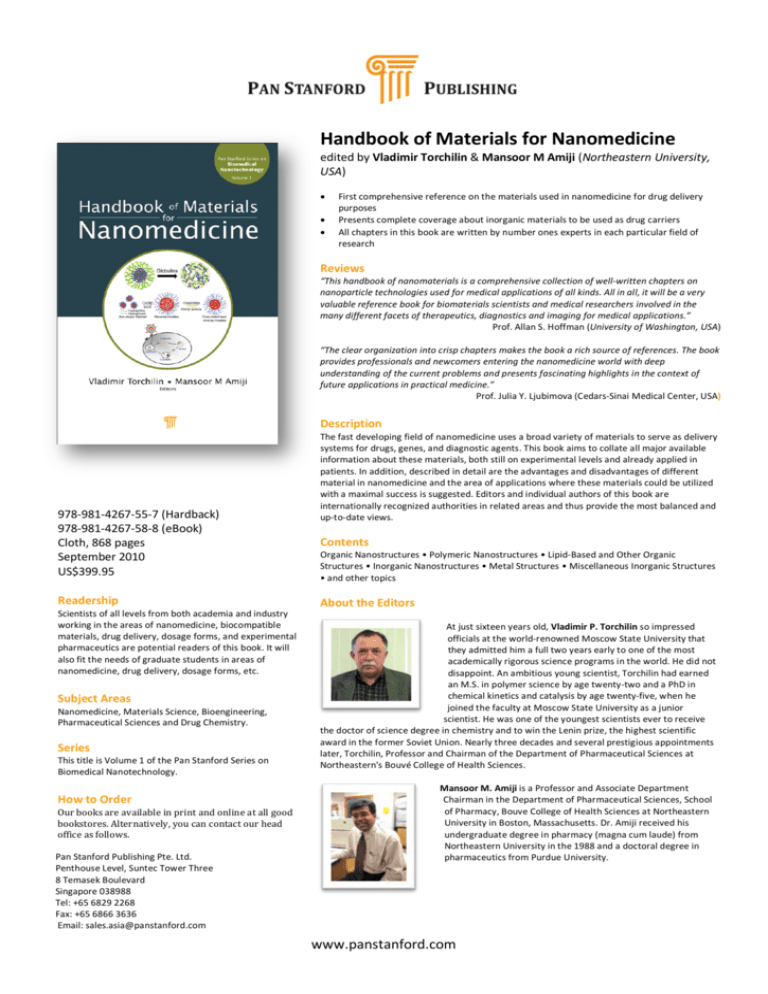
Handbook of Materials for Nanomedicine edited by Vladimir Torchilin & Mansoor M Amiji (Northeastern University, USA) • • • First comprehensive reference on the materials used in nanomedicine for drug delivery purposes Presents complete coverage about inorganic materials to be used as drug carriers All chapters in this book are written by number ones experts in each particular field of research Reviews “This handbook of nanomaterials is a comprehensive collection of well-written chapters on nanoparticle technologies used for medical applications of all kinds. All in all, it will be a very valuable reference book for biomaterials scientists and medical researchers involved in the many different facets of therapeutics, diagnostics and imaging for medical applications.” Prof. Allan S. Hoffman (University of Washington, USA) “The clear organization into crisp chapters makes the book a rich source of references. The book provides professionals and newcomers entering the nanomedicine world with deep understanding of the current problems and presents fascinating highlights in the context of future applications in practical medicine.” Prof. Julia Y. Ljubimova (Cedars-Sinai Medical Center, USA) Description 978-981-4267-55-7 (Hardback) 978-981-4267-58-8 (eBook) Cloth, 868 pages September 2010 US$399.95 The fast developing field of nanomedicine uses a broad variety of materials to serve as delivery systems for drugs, genes, and diagnostic agents. This book aims to collate all major available information about these materials, both still on experimental levels and already applied in patients. In addition, described in detail are the advantages and disadvantages of different material in nanomedicine and the area of applications where these materials could be utilized with a maximal success is suggested. Editors and individual authors of this book are internationally recognized authorities in related areas and thus provide the most balanced and up-to-date views. Contents Organic Nanostructures • Polymeric Nanostructures • Lipid-Based and Other Organic Structures • Inorganic Nanostructures • Metal Structures • Miscellaneous Inorganic Structures • and other topics Readership About the Editors Subject Areas At just sixteen years old, Vladimir P. Torchilin so impressed officials at the world-renowned Moscow State University that they admitted him a full two years early to one of the most academically rigorous science programs in the world. He did not disappoint. An ambitious young scientist, Torchilin had earned an M.S. in polymer science by age twenty-two and a PhD in chemical kinetics and catalysis by age twenty-five, when he joined the faculty at Moscow State University as a junior scientist. He was one of the youngest scientists ever to receive the doctor of science degree in chemistry and to win the Lenin prize, the highest scientific award in the former Soviet Union. Nearly three decades and several prestigious appointments later, Torchilin, Professor and Chairman of the Department of Pharmaceutical Sciences at Northeastern's Bouvé College of Health Sciences. Scientists of all levels from both academia and industry working in the areas of nanomedicine, biocompatible materials, drug delivery, dosage forms, and experimental pharmaceutics are potential readers of this book. It will also fit the needs of graduate students in areas of nanomedicine, drug delivery, dosage forms, etc. Nanomedicine, Materials Science, Bioengineering, Pharmaceutical Sciences and Drug Chemistry. Series This title is Volume 1 of the Pan Stanford Series on Biomedical Nanotechnology. How to Order Our books are available in print and online at all good bookstores. Alternatively, you can contact our head office as follows. Pan Stanford Publishing Pte. Ltd. Penthouse Level, Suntec Tower Three 8 Temasek Boulevard Singapore 038988 Tel: +65 6829 2268 Fax: +65 6866 3636 Email: sales.asia@panstanford.com Mansoor M. Amiji is a Professor and Associate Department Chairman in the Department of Pharmaceutical Sciences, School of Pharmacy, Bouve College of Health Sciences at Northeastern University in Boston, Massachusetts. Dr. Amiji received his undergraduate degree in pharmacy (magna cum laude) from Northeastern University in the 1988 and a doctoral degree in pharmaceutics from Purdue University. www.panstanford.com
